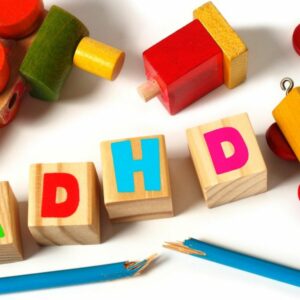
22 Jul ADHD and Perfectionism
4 ADHD SYMPTOMS THAT LEAD TO PERFECTIONISM
(with coping strategies)

ADHD and Perfectionism
Setting high standards can be natural if you are serious about your work or studies. But perfectionism is on another level, leaving no room for flaws. Being a perfectionist isn’t only for people with ADHD; they are more likely to experience it.
It may not look like a problem. However, perfectionism comes with many cons. The desire to be perfect at everything can impact the mental health of an individual with ADHD. Some negative side effects include self-criticism, frustration, and anxiety. If your child has ADHD, their tendency toward boredom and zoning out probably isn’t due to laziness or lack of interest. Learn more about the ADHD-boredom connection and tips to help your child stay on task.
So what can cause a person with ADHD to become a perfectionist? To fully understand the drive behind it, we must go through all the symptoms and signs of ADHD.
1. Hyperfocus
Focusing intensely on a task for a long period can be tiresome.
An individual with ADHD can become completely absorbed in their work. On the surface, it is the perfect way to get the job done. But concentrating on something for too long also impacts the decision to know when to stop.
Apart from that, paying attention to everything is exhausting. Consistently going back and forth over elements in a task can lead to more revisions. A person with ADHD needs to understand that hyperfocus may not be the best way to complete work.
2. Impulsivity
On the other hand, rushing tasks isn’t good for chasing away perfectionism.
Knowing when to stop is critical. As mentioned earlier, hyperfocus can lead to perfectionism. But a person with ADHD can also be prone to impulsivity – making quick decisions. It can manifest itself in a manner that critically diminishes the individual’s self-esteem.
A person with ADHD can suffer from frustration and dissatisfaction as a result. Rushing through tasks and struggling with giving immediate responses are two major signs of impulsive behavior.
Stressful feelings can form a pattern. The individual may completely refrain from the task thinking they aren’t perfect. They may begin to assume whether the effort is worthwhile if they aren’t good at it. So maintaining a balance of the pace of work is necessary not to spend just the right time on a task.

3. Fear of Failure
Criticism and failure can be hurtful.
People with ADHD can be prone to receiving repeated setbacks. They always try to give their best shot but may not always get the result they expect. On top of that, they can also bring negative feedback and criticism regarding their difficulties with organization and time management.
So, individuals with ADHD can become harsh on themselves. They can develop high expectations and perfectionistic tendencies. They can use it as a defense mechanism to protect themselves from potential judgment and chase away the fear of failure.
4. Emotional Impact
Overwhelming emotions can take a toll on the individual’s perspective.
A person with ADHD can struggle with many symptoms. People around the individual must offer the support they need. Stress, anxiety, and not feeling good enough are some of the few emotions people with ADHD have to deal with.
The pressure to meet unrealistic expectations can significantly affect the individual. Therefore, the person must learn to regulate emotions and other coping strategies.
Treatment and Coping Strategies for Perfectionism
ADHD can look and feel different for every individual. At its core, though, perfectionistic tendencies can be present. Addressing them takes a comprehensive approach that may include the following strategies:
- Challenging perfectionistic thoughts
- Learning to set realistic expectations
- Prioritizing tasks and breaking them down into chunks
- Practicing self-care and compassion
- Developing time management skills
It’s also advised to seek support from therapists, counselors, or ADHD coaches. The professional can help recognize symptoms and their severity better. They can also help develop a plan specifically for the person with ADHD. Sometimes, an individual may also need medication to manage ADHD symptoms.
Recap: ADHD and Perfectionism
People with ADHD can be more prone to perfectionism. Dealing with hyperfocus, impulsivity, fear of failure, and overwhelming emotions is common for individuals with ADHD. With the help of professional and social support, they can overcome their unrealistic expectations and pick up emotional regulation.
Remember: A little bit of kindness and empathy goes a long way! Always remind them and give them a pat on the back for giving their best shot!
Craig Selinger
Latest posts by Craig Selinger (see all)
- Psychotherapy and Support Services at Cope With School NYC - April 12, 2024
- NYC Parents of Teens Support Group - April 8, 2024
- Here I Am, I Am Me: An Illustrated Guide to Mental Health - April 4, 2024


No Comments